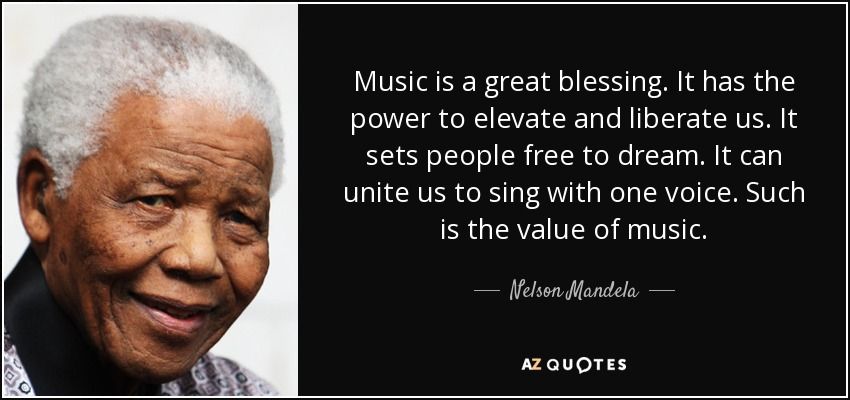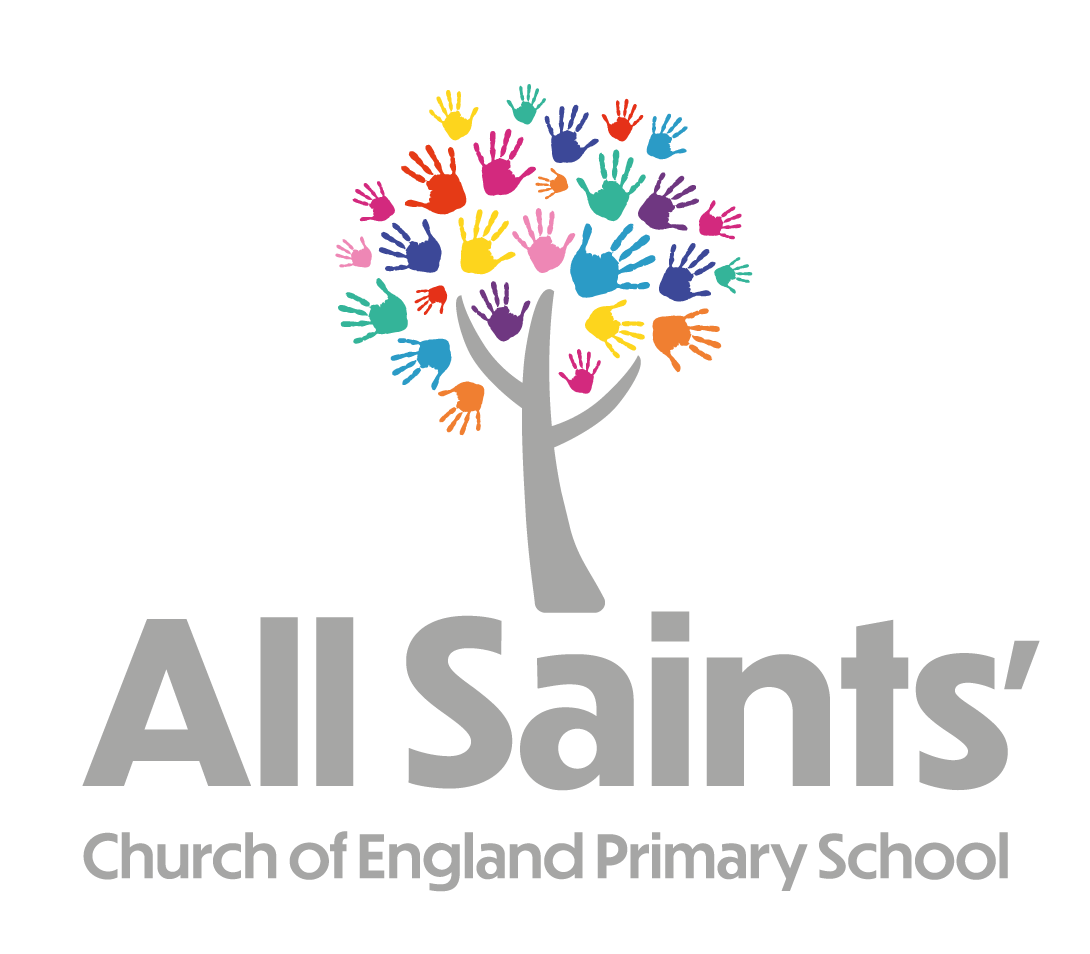Music

Growing Stronger Together in God's Love
Love 
At All Saints’, we encourage children to express their creativeness through a love of music. Our music curriculum engages, inspires and challenges our children, equipping them with the knowledge and skills to experiment, invent, create and compose their own pieces of music that they love and feel proud of. They learn how music reflects and shapes history around the world, contributes to the culture, creativity and wealth of our world; they learn to love and appreciate it.
Compassion 
As part of lessons, children are given the opportunity to work collaboratively as a team with their peers. Children are encouraged to work as a team and listen to each other. Everyone is valued and important, having something positive to contribute. We strongly encourage children to recognise the strength in their own work and in others’.
Koinonia 
The children have meaningful opportunities to create music events for various events to support our communities. Music is an excellent opportunity to create friendships, increase self-steam and confidence. Children create music performances and/or collaborations alongside learning about inter-faith harmony, harvest festival, remembrance day and support our liturgical calendar celebrations.
Endurance 
In our music curriculum, we promote children to explore, analyse and evaluate different elements of music. Although they may come across challenges in their musical journeys, we encourage children that mistakes are part of the process. Through music, the children build their resilience, which is the key to their progress and growth, both academically and personally. Evidence of their creative journey is seen through their Class Music Year Group where they have written about their learning and pictures about their progression.

As in all of our subjects, as children work through the music unit in hand, they will be given opportunities to explore and be immersed in the learning, be explicitly taught skills and learn to apply, and critique, them through our All Saints' Approach: Engage, Skill-Build and Create-Evaluate.
At All Saints’ C of E Primary School, we value the importance of music and its place within our broad and balanced curriculum. It is our children’s right to be able to share and express their individual creativity, independence, resilience, and self-reflection. We are aware of the benefits of learning and practising music for children: helping their social skills, releasing stress, developing coordination and motor skills, increasing self-esteem, encouraging creativity, building confidence and language development.
The National Curriculum is our starting point, and we have developed a clear progression pathway, so that lesson by lesson our children are building the knowledge and skills they need through our bespoke music curriculum. The curriculum draws upon the approach of Orff Schulwerk. Throughout units of work, the children move through four stages in order to organise the process of teaching and delivery of music: imitation, exploration (engaging), improvisation (skill-building), and composition (Create-Evaulate).
It is our intent that every pupil is a musician: developing as a performer, singer and composer; with the ability to listen and to critically analyse music. We want children to fully engage with music learning and to create a sense of wonder and curiosity when studying a wide variety of music. We empower children to engage with, and explore, music by allowing them to discover well-known musicians that will enable them to explore their own, and others', cultural heritages, as well as the connections between music and the different cultures around the world.
We aim to give children the time and space to explore new themes, new sensations, and ways to be creative, without the need to be perfect, and encourage them to remember that we focus on the process of skill-building and not just the end result. However, high quality musical outcomes, through excellent teaching and learning experiences, is our goal, ensuring that there is clear progression throughout, with vocabulary being taught explicitly in the context of musical knowledge and skills pupils will learn by the end of Key Stage 2.
We believe that the process takes precedence over the product. We want our children to see the enjoyment and satisfaction in the process of producing and participating in creating and making music. It is through the children’s personalised experience of music at All Saints’, that we enable the children to feel safe, secure, and happy, to produce their most creative work and being able to evaluate it for impactful improvements.
EYFS 
Being imaginative and Expressive:
- Pupils will learn how to sing a range of well known nursery rhymes and songs as well as how to perform songs and rhymes trying to move in time with music.
- Creation of music is fundamental to our pupils' learning development.
Year 1 
Autumn: Sounds around me
Year 1 will learn about silence, sounds and noise. Also, they will learn about the different environmental sounds we have around and their features. As a musicians, they will learn that the sounds have different volumes with the Italian appropriate vocabulary and the voice is our first instrument. Also, they will learn the a simple structure of a song and accompany songs with percussion instruments.
Spring: I like this music
Year 1 will be introduce to listen different musical styles. As a musicians, they will learn about ; high and low pitch; C, G sounds and the musical notes: Crotchet and crotchet rest. As well as recap the musical concepts learned previously.
Summer: We are an orchestra
As Musicians, Year 1 will learn about the orchestra’s instruments. Also, they will learn where musicians write the musical notes, the stave, and the most important music signature, the treble clef. Also, they will work in their listening skills recognising onomatopoeias and environmental sounds, and enjoy listening musical stories. Introduction of the different musical styles.
Year 2 
Autumn: Using our listening sense
Our students will listen to Music around the world and the power of Music to make bridges between people. They remembered basic elements of the Music like the treble clef, crotchet and crotchet rest and how to execute them during active listening and performing. Remember the times signatures 2/4 and 4/4 and be able to recognise them.
Spring: I sound in tune
Year 2 will be introduce to listen different musical styles; Understand three pitched notes. To discover the Orchestra and the instruments they take part of it. As a musicians, they will learn about ; structure of a musical piece; high and low pitch; C, E, G sounds and the musical notes: Crotchet and crotchet rest. To be able to play an instrument and sing a song using different dynamics: lento, adagio and andante.
Summer: Where shall I sit?
Year 2 Will learn about the instruments in of the Orchestra and where they are allocated. Pupils Will accompany songs with tuned and untuned instruments. They will able to create their own musical stories from an environmental idea given. Introduction to different musical styles: blues and 70’s.
Year 3 
Autumn: Let’s sing and play together
Year 3 will recap basic musical concepts learnt previously, getting them ready to learn the new concepts: quaver and pair of quavers; quaver rest; sound G; time signature 2/4 and 4/4and syncopation. Also, carry on playing percussion instruments to accompany their singing. Create music and sing music together, is one of our priorities every term.
Spring: I enjoy Music
Year 3 will learn about string, woodwind and brass Instruments on the orchestra. As a musicians they will learn dynamics; tempo; C, E, G, A sounds and where they are on the stave. Time signatures 2/4, 3/4 and 4/4. The students will learn about the musical styles Rock and Jazz.
Summer: The inspiration of Music
Our Year 3 students will learn about the classical repertory of music and how composers from the past found inspiration on nature for composing. They will learn about the basic elements of the music: timbre, dynamics, pitch, duration and tempo.
Year 4 
Autumn: Attention! Percussion in progress!
Year 4 will learn about Jazz and they will visit a Jazz band at New Wimbledon Theatre. They will use their voice and body as a main instruments. The students will learn simple choreographies as a big group. Year 6 will explore the possibilities of the sound in different objects and body as well as to play percussion instruments to accompany the dance and the songs.
Spring: A new instrument
Year 4 will start to learn about the recorder. How to hold the recorder correctly. Through songs, they will learn the different musical notes: B, A, G, E , D sounds and different musical concepts like: round (cannon); ostinato; duet and tied notes; slurred notes and structure of a song.
Summer: Our performance is coming!
Year 4 students will learn the story of Jester and Minstrel with the traditional instruments they used and how the voice and the body is a main musical instrument. Also they will learn more about the classical repertory, musical ensembles and the different instrument families take part of a orchestra.
Year 5 
Autumn: Welcome back to school!
Year 5 will recap the basic elements of the music learnt previously as well as new musical concepts. During Autumn, our students will learn about Music during Prehistory and Middle Era as well as two composer who represent those periods of time: Johann Sebastian Bach and Antoin Dvorak.
Spring: Prehistory, Middle Era, Baroque and classicism music styles.
Our students will learn the diversity of the world we live learning traditional dances and instruments of same countries. Y5 will learn more music concepts and notation. They will carry on learning about Music during Baroque and Classicism Era and about the composer L. Van Beethoven.
Summer: Romance and 20th century.
Year 5 will remember the C major scale ascending and descending and will learn a new one: The pentatonic scale. They will end this academic year learning about Romance and 20th Century Music style and the famous composer F. Chopin.
Year 6 
Autumn: Let´s catch up making Music!
Year 6 will recap the basic elements of the music learnt previously as well as new musical concepts. The students will play instrumental music pieces and dance simple choreographies in binary and quaternary meter. As well as to do rhymical and physical coordination activities during listening songs in different meter.
Spring: Ukulele
Year 6 will remember how to play the Ukulele including strumming techniques, C, Am, F, G chords and play and sing songs together as a big group, read tabs and be able to play a songs with arpeggio technique.
Summer: It´s time to say goodbye!
Our Year 6 students will carry learning how to play the Ukulele and how to read Tabs to play the C major musical scale and the melody of songs and will show to the students their music progress in a CW. As a musicians, the students will learn the basic elements of the music.
Click here to view our School Music Development Plan.
